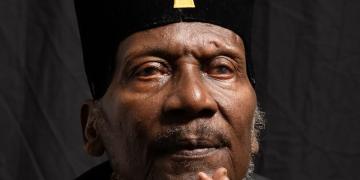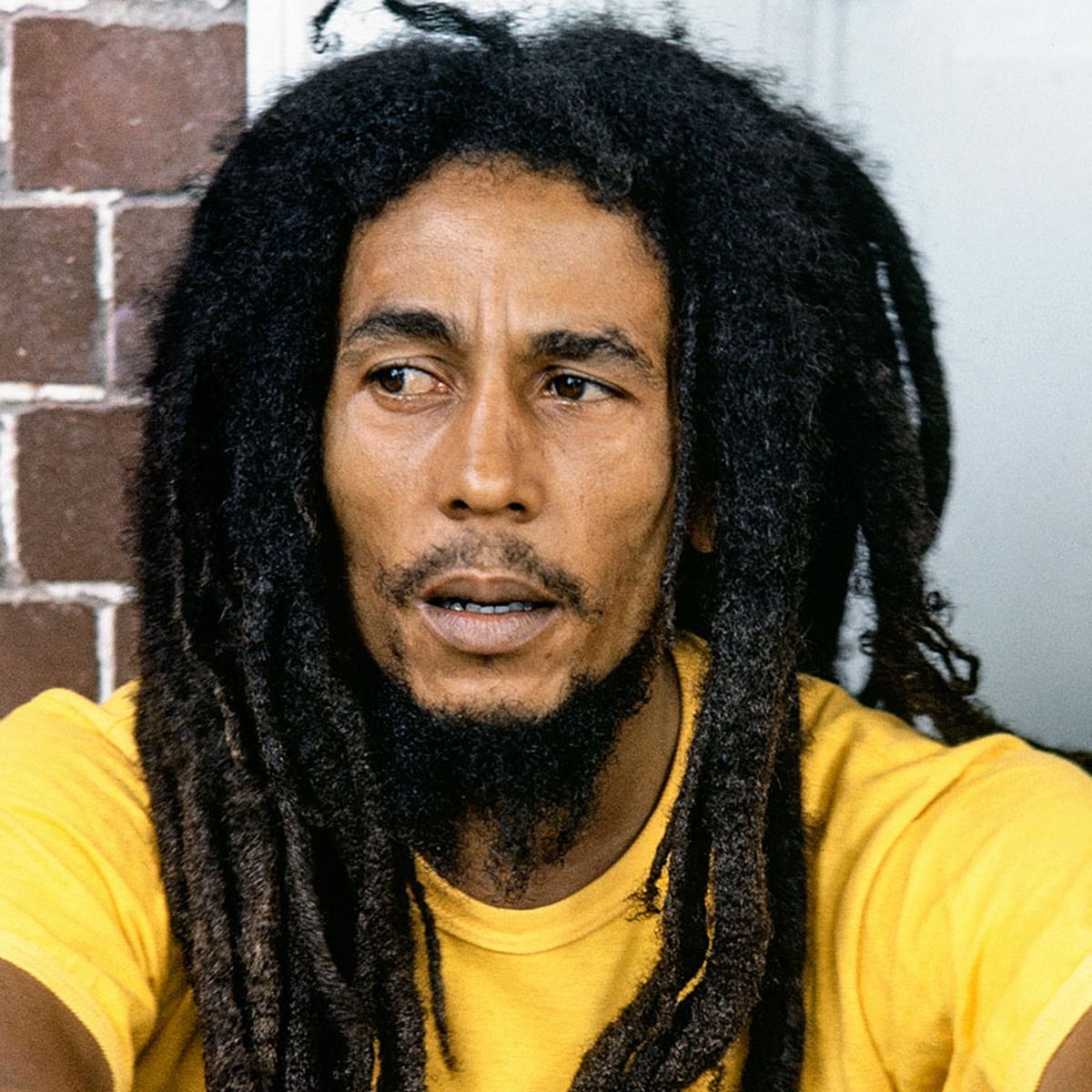 Bob Marley, born Robert Nesta Marley, was a world-renowned Jamaican singer, songwriter, and musician. He is widely regarded as one of the greatest and most influential musicians of the 20th century and is known for his pioneering role in popularizing reggae music around the world. Marley’s music was a powerful force for social change, and he remains a cultural icon whose legacy continues to inspire generations.
Bob Marley, born Robert Nesta Marley, was a world-renowned Jamaican singer, songwriter, and musician. He is widely regarded as one of the greatest and most influential musicians of the 20th century and is known for his pioneering role in popularizing reggae music around the world. Marley’s music was a powerful force for social change, and he remains a cultural icon whose legacy continues to inspire generations.
Born on February 6, 1945, in Nine Mile, Saint Ann Parish, Jamaica, Marley was the son of a Jamaican mother, Cedella Malcolm and a white English father, Norval Sinclair Marley. He grew up in the Trench Town neighborhood of Kingston, Jamaica, and was raised as a Catholic, before discovering Rastafari in the early 1960s. It is said that Marley’s early exposure to music came through the church, and he was particularly inspired by the music of his favorite artist, Curtis Mayfield.
Marley began his music career in the early 1960s, forming his first band, The Wailing Wailers, with Peter Tosh and Bunny Wailer. They released their first album, “The Wailing Wailers,” in 1965, which featured a mix of ska, rocksteady, and R&B. The group’s sound evolved over time, and they eventually became known for their unique blend of reggae, which combined traditional Jamaican rhythms with soul, R&B, and rock influences.
Marley’s music was deeply rooted in the struggles and realities of life in Jamaica, and he used his platform to advocate for social justice and equality. He was a vocal critic of the government and the police, and his music often addressed issues such as poverty, oppression, and racism. Some of his most iconic songs, such as “Get Up, Stand Up”, “Redemption Song”, and “No Woman, No Cry”, became anthems for the fight against injustice and inequality.
Marley’s influence on popular culture is immeasurable, and his music continues to resonate with people around the world. He was one of the first musicians to bring reggae to an international audience, and he remains one of the best-selling and most popular artists of all time. Marley’s music has been covered by countless musicians and has been featured in countless movies and TV shows, and his influence can be heard in the work of many contemporary artists.
Marley passed away on May 11, 1981, at the age of 36, after a battle with cancer. Despite his untimely death, his legacy lives on through his music, which continues to inspire and uplift people around the world. Marley’s message of love, unity, and social justice is as relevant today as it was during his lifetime, and his music remains a powerful force for positive change.
Bob Marley was a musical genius and a cultural icon whose influence is still felt today. He used his music to fight against social injustice and promote peace and unity, and his message continues to inspire generations. Marley’s legacy serves as a reminder that music has the power to bring people together and effect positive change, and he will always be remembered as one of the greatest musicians of all time.
Things to know:
- In 1976, he survived an assassination attempt just days before a concert in Kingston, Jamaica.
- Marley’s album “Exodus” was named Album of the Century by Time magazine in 1999.
- He was a committed advocate for social justice, and his music often addressed political and social issues.
- Marley was a vegetarian, and he often spoke about the importance of living in harmony with nature.
- Bob Marley was a soccer fan and played soccer regularly. He even composed and recorded a song titled “The World is Changing” for the Jamaican national football team.
- Marley’s father was a white British naval officer named Norval Sinclair Marley, who Marley barely knew. He passed away when Marley was only 10 years old.
- Despite being an iconic reggae artist, Marley was also a fan of other genres of music. He was known to listen to and appreciate the music of artists such as The Beatles, Curtis Mayfield, and Jimi Hendrix.
- In addition to his musical talents, Marley was also a skilled sailor. He loved to spend time on the water, and once sailed from Kingston to Miami with his friend, guitarist Al Anderson.
- Marley had a deep spiritual side and was known to practice meditation and yoga. He was also influenced by the teachings of Ethiopian Emperor Haile Selassie, whom Rastafarians consider to be a messianic figure.
- Marley’s music was so influential that in 2010, the United Nations Educational, Scientific and Cultural Organization (UNESCO) added Marley’s album “Exodus” to its list of cultural artifacts worth preserving.
- Marley’s final words to his son Ziggy were reportedly “Money can’t buy life.” This quote has since become a famous Bob Marley saying and is often used to highlight the importance of valuing life over material possessions.
























